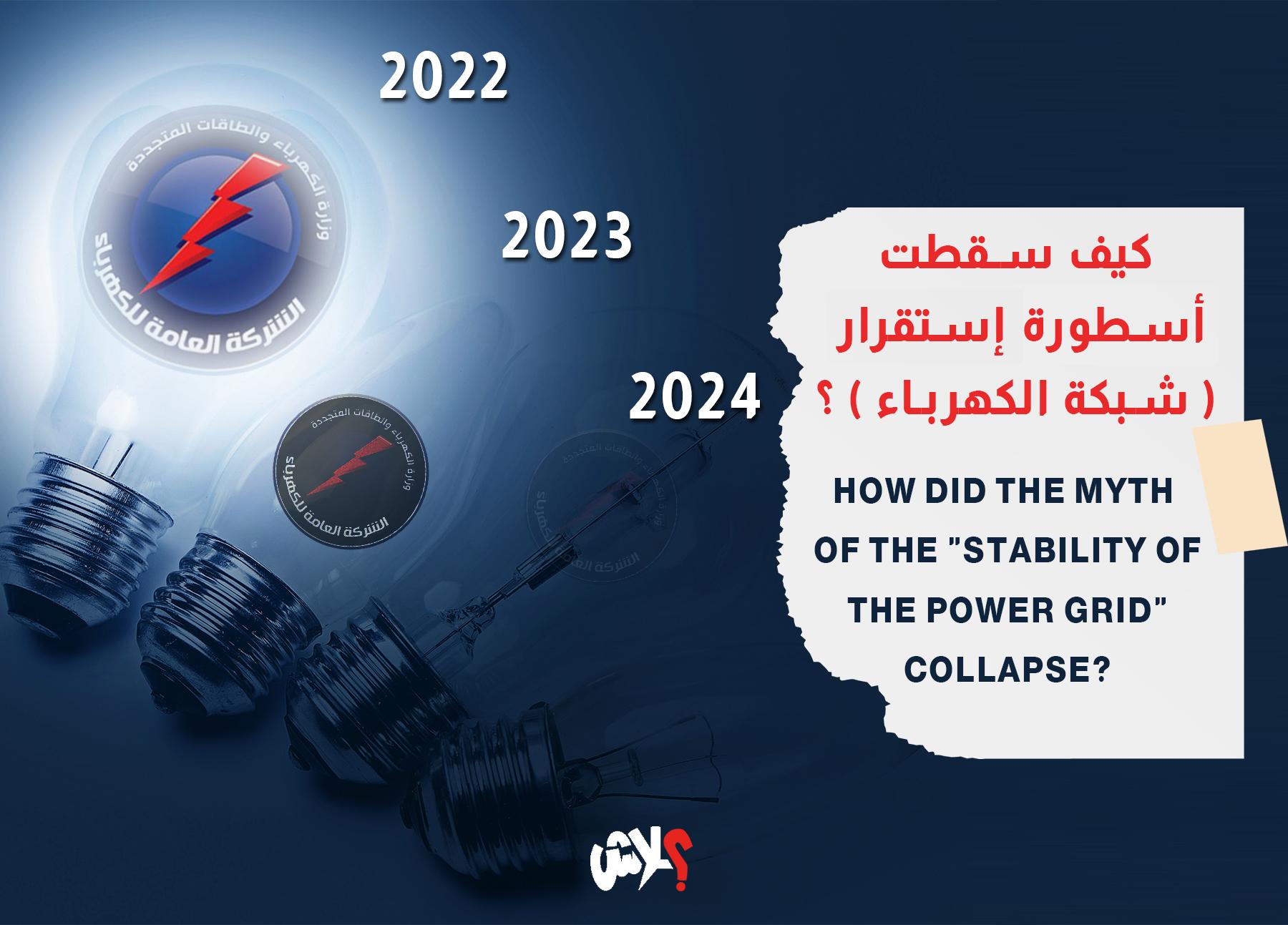How Did the Myth of the “Stability of the Power Grid” Collapse?
Not long ago, the Prime Minister of the Government of National Unity held a meeting with key figures in the oil sector, most notably the Chairman of the National Oil Corporation (NOC). However, Farhat Bengdara—the current Chairman—was absent. Instead, the acting Chairman, Masoud Suleiman, attended. Just days ago, the acting Governor of the Central Bank of Libya, Abdul Fattah Ghafar, held another meeting with oil officials, and once again, Bengdara was absent, with his stand-in present instead.
All this comes as the country faces one of its most severe economic crises: a convergence of the electricity crisis, the Central Bank crisis, and an oil shutdown. This raises a pressing question: Where is Farhat Bengdara, the Chairman of the National Oil Corporation?
The consequences of the Presidential Council’s decision to dismiss Sadiq al-Kabir from his position as Central Bank Governor are well known. These include threats from international financial institutions to suspend dealings with Libya and the Eastern government’s closure of oil fields and ports, which effectively halted oil and gas exports. At the same time, Libya’s fragile electricity infrastructure is facing escalating crises. The General Electricity Company (GECOL) has claimed that the NOC failed to supply the natural gas necessary to operate the country’s main power plants. This could lead to catastrophic outcomes: the plants will not be able to meet national demand, resulting in widespread blackouts—or even full blackouts—that could paralyze essential services.
Amid this worsening crisis, Bengdara chose to take his annual leave. While it’s common practice in politics and crisis management for leaders to cut their vacations short during emergencies, this is clearly not the norm in Libya. As the crisis intensified, the top oil official left the country for Egypt to enjoy summer in the hotels and resorts of Alexandria and Sharm El Sheikh. Even more disheartening is that this kind of indifference no longer surprises anyone—it has become normalized in a country long mired in corruption and mismanagement.
Let us now set Bengdara aside and shift focus to the government and its choice of crisis managers.
Around four years ago, Prime Minister Abdul Hamid Dbeibah dismissed Wi’am Al-Abdali from his role as head of GECOL after a blackout hit one section of the national grid. At the time, the company was actively working on major maintenance operations, and new plants were being built in Al-Khums, Tobruk, Tripoli, and Misrata. Yet this progress did not spare Al-Abdali, who was replaced by Dr. Mohamed Al-Mashai—a dentist with no previous experience in the sector.
Al-Mashai inherited a company already undergoing transformation, and during the following summer, the public began to notice improvements. The pro-government page “Return of Life” mocked people with posts asking, “Did you sell your generator yet?”
Roughly two years into his appointment, Al-Mashai took up a major leadership position at Al-Ahly Tripoli Sports Club and began spending millions on athletes, coaches, and transfers—“from his own pocket,” of course. Meanwhile, power outages returned with a vengeance across the country. Except for some limited areas in central Tripoli, even the capital endured long daily blackouts. The generator-themed posts disappeared from “Return of Life,” replaced by updates about roads and bridges, while the football club continued to sign African stars with millions of dinars from Al-Mashai’s private funds, naturally—because none of that affects the electricity grid.
Amid this chaos, the oil crisis offered Al-Mashai a lifeline. He shifted the blame for power cuts onto the National Oil Corporation, sending a letter to the Attorney General asserting that the shortage of natural gas was the main cause of the blackouts and looming grid collapses. He explained that major plants like those in Al-Zawiya, Al-Khums, and North Benghazi were receiving only a fraction of the gas needed to power millions of homes.
Yet the current electricity failure is clearly cumulative. Many areas have been experiencing outages since early summer. This isn’t new, nor can it be attributed solely to the oil crisis or the NOC’s failures. In fact, these shortcomings are part of a broader pattern of corruption and mismanagement that has plagued the oil and gas sector for years. Despite the massive budgets allocated to the NOC—amounting to more than 56.9 billion Libyan dinars from 2022 to 2024—the corporation has repeatedly failed to supply the necessary gas for the national power grid. Rather than improving infrastructure or supply chains, these funds have vanished—just like the electricity—leaving GECOL and the Libyan public to bear the consequences.
Bengdara’s absence from the crisis management scene is striking. Not because it contradicts the typical behavior of Libyan officials—many of whom vacation in luxury while their people suffer—but because his appointment itself was a product of a political deal between Dbeibah’s camp and Khalifa Haftar’s. And with Haftar’s forces currently shutting down the country’s oil supply to pressure Dbeibah, a fundamental question remains: Why is Dbeibah tolerating Bengdara’s incompetence?
What would happen if Bengdara were removed from office? Would Haftar’s side close the oil ports? They are already shut. Is Bengdara managing the crisis professionally? He isn’t managing it at all—he’s on vacation in Egypt. Has he achieved any major accomplishments that surpass his predecessors? No—he is simply continuing their work. In that sense, he mirrors Al-Mashai’s role in GECOL, with the only difference being that Bengdara hasn’t taken charge of a football club—at least not yet.
So many questions, and no logical answers. The only clear truth in Libya is that we no longer evaluate public officials based on success or failure. The only criterion that matters is: which political camp does the official belong to?

